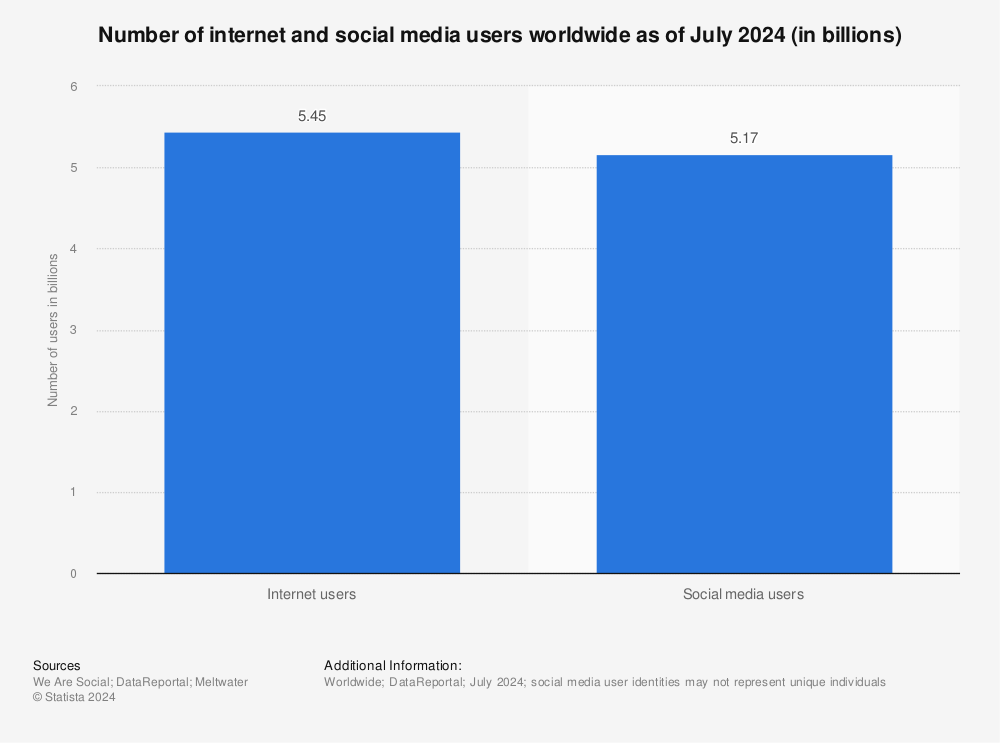The 5 Benefits of SpaceX’s Starlink for Africa

As we all compulsively stare at our phone messaging and browsing like drug addicts; spare a thought for those who do not have the opportunity to do the same.

Find more statistics at Statista
Though great strides have been taken to ensure more people across the globe have access to the internet, only 65% of the world has access to the internet as of January 2023. Everyone deserves access to cat videos and a fair chance to argue nonsense with twitter bots and trolls (lol). This great need to solve this 'internet access' disparity is what is the driving ethos behind the launch of Space X' Starlink service. On their website it reads, “Starlink provides high-speed, low-latency broadband internet across the globe. Within each coverage area, orders are fulfilled on a first-come, first-served basis.”
Gladly, Africa is starting to get a roll-out of the much needed internet service. Nigeria has got their roll out. Another country that has started receiving roll-out is Rwanda, according to this map provided on Starlink's roll-out distribution map. With more distribution, there is no doubt that this will have a really positive impact on Africa's information systems.
Below, Top Tunnel dives into the 5 benefits Africa shall receive from Starlink's roll-out:
- Improved access to information: For many developing African countries, reliable and high-speed internet is a rarity. With Starlink, individuals in these countries can access information more easily and efficiently, allowing them to stay connected with the rest of the world, access educational resources, and stay informed about developments in current affairs. Information on 'remote jobs' opportunities becomes more accessible. The younger generation of students can now explore careers in the digital landscape. Here are some of the digital careers and skills open to people once they have a stable internet connection.
- Economic growth: Access to reliable internet can promote economic growth by creating opportunities for entrepreneurs and small businesses to reach new customers and markets. Starlink can help bridge the digital divide in Africa, allowing entrepreneurs to access online resources and tools, connect with global suppliers and customers, and build robust e-commerce businesses that compete globally.
- Healthcare and science: Telemedicine is a need in Africa, particularly in rural areas and underdeveloped remote areas. Starlink can provide high-speed internet that enables doctors to consult with patients remotely. Coordinated scientific efforts can be met as scientists across the globe can remotely work together, tackling many issues relayed to climate change and disease/pandemic/endemic control.
- Disaster response: In areas prone to natural disasters, such as floods or earthquakes, traditional infrastructure such as internet fibre connection and satellites can be damaged or destroyed, leaving communities without access to communication networks. Starlink can provide a reliable alternative that can be quickly deployed in emergency situations, enabling communication and coordination among emergency respondents and affected communities.
- More Freedom of speech and expression: During the 2016 'This Flag' protests in Zimbabwe, the government ordered POTRAZ (Postal and Telecommunications Regulatory Authority of Zimbabwe) to block all internet connectivity so as to reduce the free flow of information. With Starlink, the government will have very little control over internet connectivity, however, this assertion is not backed by any real-life scenario where Starlink was in the midst of heated political strife. This assertion is primarily backed by the fact that Elon Musk is a known propagator of free speech himself which is enough assurance that Starlink will not become a vehicle or tool for repressive governments.

